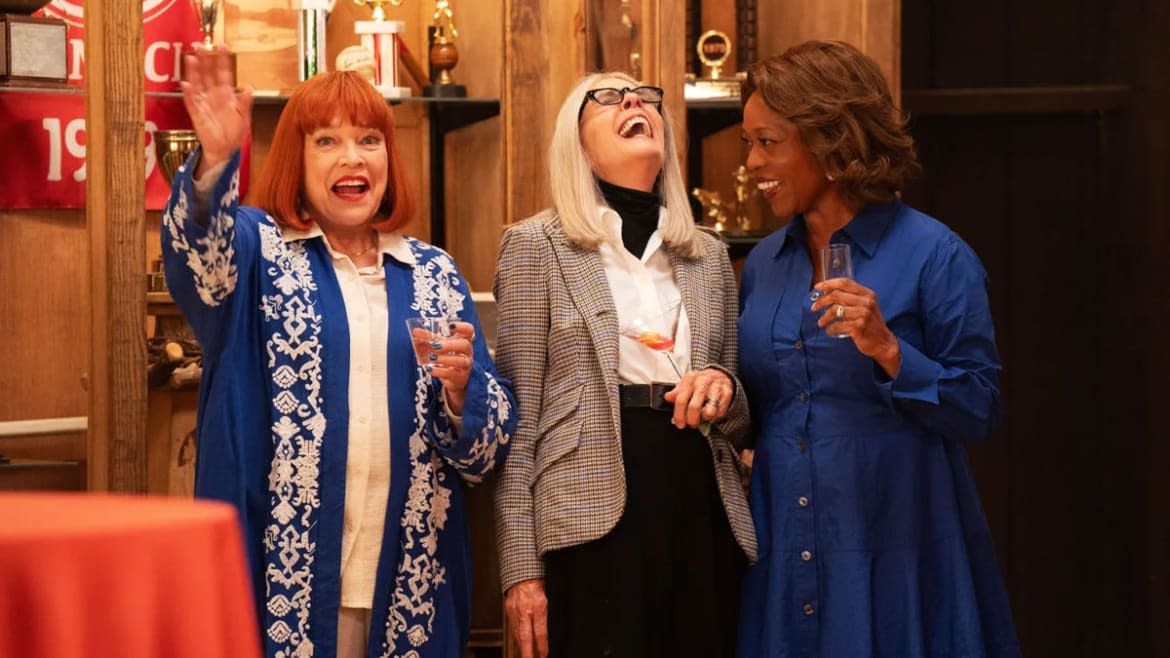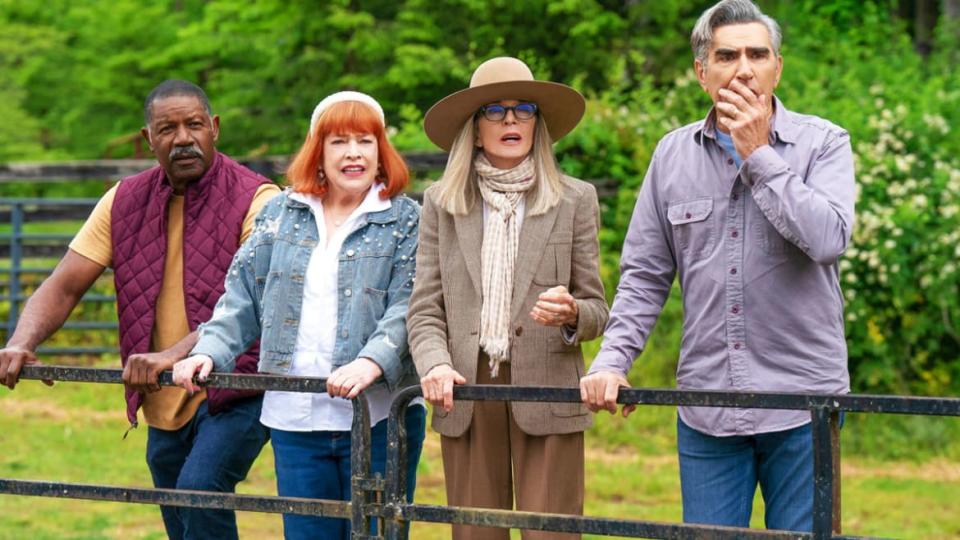Watching ‘Summer Camp’ Is a Great Way to Waste Your Time

Each summer, I am left chasing a high that is increasingly difficult to reach, and that high would be a little thing called “seeing matinees at 3 p.m. and walking outside afterward to feel the warmth of the sun on your skin.”
You might be thinking: “That’s easy enough: Just buy a ticket to an afternoon movie.” But that’s where you’re wrong. For this sweet summer sensation to reach maximum bliss, you must see a movie that is neither bad nor particularly good. If the film has little to no emotional impact on you at all, even better! To amplify the effect of the sun’s rays after spending two hours in a dark movie theater, one has to select a movie that is so completely inconsequential that emerging from it makes existence all the more pleasurable. Recent examples include Minions: The Rise of Gru, Mrs. Harris Goes to Paris, Where’d You Go, Bernadette—you get the idea.
This summer, we’re kicking the chase off early with Summer Camp, Castille Landon’s entry into the ever-developing GCU (Granny Cinematic Universe). The film stars Diane Keaton, Alfre Woodard, and Kathy Bates as three former childhood best friends, who forged a close friendship at a sleepaway camp over many seasons, only to slowly lose touch as the decades passed. As luck would have it, their beloved home away from home is having a member reunion, and it’s the perfect chance to get the band back together.

Dennis Haysbert, Kathy Bates, Diane Keaton and Eugene Levy.
But it’s not all fun, games, and potholder weaving. Ginny (Bates), Mary (Woodard), and Nora (Keaton) have taken different paths in their lives and careers, and their differences are never more apparent than when they find themselves back in the place where they first became pals. Nevertheless, through some physical comedy gags and pillow-soft conflict, they break down their walls and let each other in again, finding that their close bond only needs a little bit of nurturing to get back into its groove. It’s a predictable and palatable affair, invigorated in spurts by Woodard’s realism and Bates’ comic timing. But Summer Camp is ultimately a forgettable experience—albeit an enjoyable one—that focuses too much on how its characters have changed as opposed to the buoyant ways they reconnect.
Mary, Ginny, and Nora are all more detached from one another than ever. Ginny’s series of self-help books called “Get Your Shit Together!” have taken her on the road and brought her legions of adoring fans, who fill up her calendar when she could be setting aside time for her friends. Mary, who works as a nurse, fills her schedule with a job so demanding that she can barely find time for her marriage, let alone herself. Then there’s Nora, a scientist who spends her days and nights plugging away developing a line of environmentally friendly cleaning supplements. Yes, really! They have Diane Keaton up in here staring at drawings of nucleopeptides and going, “Hmmm.” Even totally average movies have blinding bright spots.
But Ginny is determined to make this girls' trip to their dear Camp Pinnacle happen. While Mary is easier to convince, Ginny has to jokingly blackmail Nora with pictures of the group’s Cancun trip in ’97. It’s a move that makes Nora remember just how much fun she’s had on the trio’s past outings, and enough to make her step away from the microscope and into the mosquitos.
Camp Pinnacle is just as they remembered it, and that includes the former teen heartthrobs Stevie D. (Eugene Levy) and Tommy (Dennis Haysbert), as well as the Pretty Committee, the popular girls who Ginny had to rescue Nora and Mary from back in the day. Of course, things are a little different at camp now. The Pretty Committee, led by their boss Jane (Beverly D’Angelo), might be just as beautiful, but they quickly become total simps to Ginny now that she’s found fame. There’s also the cabins, which had that rustic camp touch—complete with fly paper—until Ginny called in a favor from her friend Martha Stewart to give their old bunk a full-on glamping makeover, complete with wine fridge.
No Movie This Year Will Make You Cry Like ‘Robot Dreams’
Summer Camp finds plenty of laughs in its front half as the women acclimate to their surroundings for the first time in decades. There’s humor to be derived from all of their nostalgia, which one would expect would eventually lead to the movie’s characters reflecting more on the parts of childhood that they shared. But besides a few flashback sequences at the very top of the film, Landon keeps the focus in the present, often to the film’s detriment. We become who we are largely because of our experiences as kids. And while Summer Camp does a decent job at saddling each character with their archetype—confident Ginny, shy Nora, neurotic Mary—there is depth lost by Landon’s refusal to mine the past for more emotional weight.
That’s not to say that some good times won’t be found here. When Summer Camp is light and bright, it’s at its best. The threesome trades some particularly funny setups and punchlines, like when Ginny shows the girls an inspirational TikTok she made. The video is filtered so heavily that Ginny looks almost exactly like anything from Madonna’s Instagram account (if Madonna wore Julia Roberts’ Mother’s Day wig, grown out a couple more inches). “It’s real subtle,” Mary says, half-rolling her eyes. “As a Brink’s truck!” Nora adds. And though the inevitable river rafting sequence that arrives a few scenes later feels cut and dried, there are some chuckles to be had watching Diane Keaton’s body double flop overboard.
If Summer Camp could maintain that rhythm when it gets to its more sentimental moments, it might be worthy of the 80 for Brady or Book Club hall of fame. But there isn’t as much poignancy as there should be. Mary’s strain in her loveless marriage is the film’s emotional high point, but it still struggles to resonate. Internal spats and greater life disputes are resolved with the same level of ease that ultimately makes the movie feel as idealist as leaving a real summer at camp, confident that going back to reality will be just as great and that you’ll stay in touch with all of the friends you made. It’s just not how life works. But there’s still a sweetness to that naive optimism, one that makes Summer Camp more of an ideal matinee time-waster than an appointment viewing at the cinema.
Get the Daily Beast's biggest scoops and scandals delivered right to your inbox. Sign up now.
Stay informed and gain unlimited access to the Daily Beast's unmatched reporting. Subscribe now.


